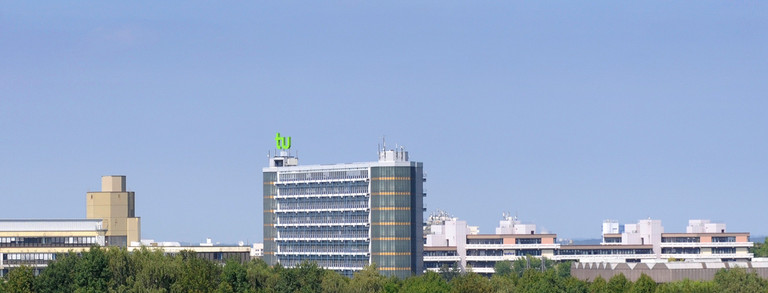MERCUR to Fund Four New Cooperative Research Projects with around 2.8 Million Euros
- UA Ruhr
- Top News
- Research

“Targeting Cancer at the Interface of Genomics, Metabolism and Immune Surveillance (IGNITE)” – the joint project of TU Dortmund University and the University Hospital of University of Duisburg-Essen, which aims to put excellent basic research in practice – has been approved for the Excellence funding line. Over five year, some 1.8 million euros will go to the development and both the preclinical and clinical validation of new cancer drugs. IGNITE bundles expertise from medicine, chemistry and biology. The project is led by Prof. Daniel Rauh from the Department of Chemistry and Chemical Biology of TU Dortmund University and Prof. Christian Reinhardt from the Clinic for Hematology and Stem Cell Transplantation at the Essen University Hospital.
Three projects, which will involve TU researchers, have been approved for two years in the cooperation funding line. The content is set to focus on solid state physics, the life satisfaction of young people and dealing with digital media.
Solid state physics
In the project titled “Composite collective excitations in correlated quantum materials”, researchers from TU Dortmund University and Ruhr-Universität Bochum (RUB) are addressing an ongoing problem in solid state physics: The fact that all important phase states of matter arise from the interplay between many particles and their interactions. Different phases are often competing with each other, resulting in particular correlation effects and the development of material properties that go beyond the sum of the properties of the individual parts. The project aims to understand, control and harness this “symbiosis”. The physicists Prof. Götz S. Uhrig and Prof. Zhe Wang from TU Dortmund University are involved in the project, which is allotted around 490,000 euros in funding.
Life satisfaction of young people
The project “Determinants of subjective well-being in sensitive periods of adolescence”, which is a collaborative effort between all three UA Ruhr universities, examines the life satisfaction of young people aged 13 by way of a qualitative study and a quantitative longitudinal panel study. This should make it possible to draw conclusions about possible factors influencing the optimal development of subjective well-being in adolescence. Prof. Ricarda Steinmayr from the Department of Educational Sciences and Psychology at TU Dortmund University is involved in this research, which has been allocated 360,000 euros in funding.
Dealing with digital media
Young researchers from all three UA Ruhr universities are looking to develop guidelines for the functional use of digital media for children and adolescents. With that in mind, the aim of the project titled “RuhrNetwork for Functional Digital Media-Use in Children and Adolescents” is to gain a better understanding of the underlying psychological mechanisms so as not to just warn people against dysfunctional use through preventative measures, but, more importantly, to identify and fully harness the opportunities and possibilities that digital media have to offer. Dr. Anke Heyder from the Department of Educational Sciences and Psychology at TU Dortmund University is involved in the network, with the funding amounting to approximately 100,000 euros.
The University Alliance Ruhr
Since 2007, RUB, TU Dortmund University and the University of Duisburg-Essen have been closely collaborating as strategic partners under the UA Ruhr umbrella. By joining forces, these partner universities are able to systematically enhance their performance. Under the motto “Better Together”, there are now over 100 collaborations being conducted in research, teaching and administration. With more than 120,000 students and almost 1,300 professors, the UA Ruhr is one of the largest and most productive scientific locations in Germany.




![[Translate to English:] Partner Four hands are holding the green logo of TU Dortmund University](/storages/tu_website/_processed_/1/d/csm_Partner_Nicole_Rechmann_KW_670eba0154.jpg)




![[Translate to English:] Forschung An apparatus with tubes in a laboratory](/storages/tu_website/_processed_/0/c/csm_Forschung_Juergen_Huhn_4fa3153b51.jpg)
![[Translate to English:] Studium Five students are sitting in a lecture hall. They are talking to each other.](/storages/tu_website/_processed_/c/9/csm_Studium_FelixSchmale_dbdbfb0dd7.jpg)





